Invited Speakers
SESSION 1 : ONE HEALTH UNIVERSITY NETWORK (OHUN)
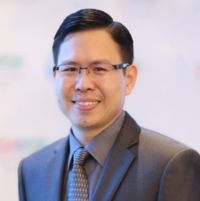
DR VIPAT KURUCHITTHAM
South
East
Asia One Health University Network (SEAOHUN)
Dr.
Vipat Kuruchittham has over 15 years of experience
working in and managing health and education programs across Southeast and
South Asia, working with international organizations, U.S. government agencies,
ministries of health and agriculture, and international and regional NGOs. For
much of this time, Vipat has led the regional drive to
embed One Health knowledge and skills into the next generation of One Health
professionals as the Executive Director of Southeast Asia One Health University
Network (SEAOHUN). SEAOHUN is a regional network of over 102 universities in 8
Southeast Asian countries, working to develop a resilient and competent One
Health workforce by leveraging education, research, and training excellence. He
holds a Ph.D. in Health Systems Engineering with a minor in public health from
the University of Wisconsin – Madison.
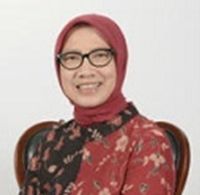
DR DIAH ISKANDARIATI
Indonesian
One Health University Network (INDOHUN)
Dr.
Diah Iskandriati
graduated as Veterinarian from the Faculty of Veterinary Medicine and obtained
her Doctoral degree in Primatology from IPB University in Bogor, Indonesia. She
has been working with Primate Research Center,
Bogor Agricultural University, Bogor Indonesia since 1990. As a Biosafety
officer and chairperson for Institutional Biosafety Committee she has been
actively promoting the importance of biorisk
management to be implemented in all laboratory and animal facilities at the center
as well as at the national level.
Currently,
Dr Iskandriati
and nine other experts from International Federation of Biosafety Association
are trusted to sit as members of the Technical Committee 212 (TC 212), Working
Group 5 (WG5) which is in charge of issuing standards and guidelines for risk
control of the use of hazardous biological materials. In addition, since 2011
Dr Iskandriati
has been trusted to be the board member of Indonesian Biorisk
Association and Executive Council of the Asia-Pacific Biosafety Association
since 2013. Since 2018, she also joined One Health Laboratory Network, INDOHUN
as their Biorisk
Management Advisor. In 2017 Dr Diah was awarded the Biosafety Heroes award from
IFBA for her significant contribution on promoting the importance of biorisk
management aspect to be implemented in all laboratory and animal facilities at
national and international level. She
has many years experiences working with non-human primates and actively
involved in infectious disease and animal model related research as well as one
health aspect.
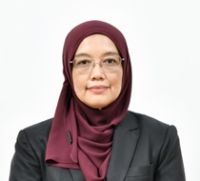
PROFESSOR DR LATIFFAH HASSAN
Universiti
Putra Malaysia/ MyOHUN
Prof.
Dr. Latiffah Hassan is
a veterinary public health epidemiologist and academician at the Faculty of
Veterinary Medicine, Universiti
Putra Malaysia (UPM). She has over a decade experience in one health project
management, strategic planning, program curation and management of one health
expertise and trainings in Malaysia. She provides consultative,
expertise or leadership roles in the INGSA-NASEM Countering Zoonotic Spillover
of High Consequence Pathogens project, Southeast Asia One Health University
Network, International Board of One Health Examiners for One health, GREASE
Regional Network, Regional Public Health Network and FAO’s and UNEP committee
for One Health, Wildlife, and Livelihoods. She has appeared in
high-level forums and panel discussions organized by the European Union, FAO,
WAOH and the Economist. She is currently the Coordinator of Malaysia
One Health University Network.
SESSION 2 : POLICY AND REGULATIONS
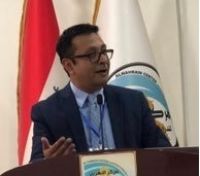
DR PRASAD KUDUVALLI
Health
Security Partners
Dr. Prasad Kuduvalli serves as Director of Scientific
Programs at Health Security Partners (HSP), a Washington DC-based nonprofit
organization focused on building health security capacity globally. Prasad has
worked with partners worldwide to bolster biosafety, biosecurity and biorisk management systems globally
through policy development, institutional capacity strengthening and workforce
development programs. He is a member of the International Federation of
Biosafety Associations Equity Focused Coordinating Committee (IFBA-ECC) and the
Asia-Pacific Biosafety Association (A-PBA). He earned his Ph.D. from the Johns
Hopkins University.
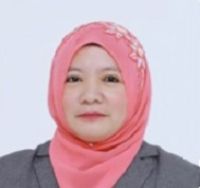
DR NOOR DZUHAIDAH OSMAN
Universiti Sains Islam Malaysia
Dr.
Noor Dzuhaidah
Osman is a law lecturer from Universiti
Sains Islam Malaysia and holds many key responsibilities such as Coordinator
for PhD in Law, Committee Member for Biosecurity and Biosafety USIM, Secretary
for International Law Unit ILU USIM, Ketua Unit
Bicara Sivil, Klinik Guaman
USIM and Coordinator for MOU FSU USIM
with Suleyman Demirel Universiti,
Kazakhstan. She has been a Keynote and invited speakers and lecturer at local
and international levels such as at the Institut Tadbiran Awam
Negara (INTAN) KL for Master/PhD Research Method, UNSOED Indonesia,UNISSA
Brunei, VSUES Russia, Hukuk Fakultesi,
Suleyman Demirel
University, South Africa, the United Kingdom, Italy, Brunei, Indonesia,
Singapore, Netherland, Belgium. She has written 100 popular articles at
newspapers such as Berita Harian, Utusan
Malaysia, Sinar Harian, The
New Straits Times, New Sarawak Tribune and The Malaysian Reserve. Dr. Noor Dzuhaidah’s
accolades include 2 silver medals for Civil Procedure MOOC during IUCEL and
ECONDEV 2022, Best Research Paper during ICOLGAS 2020 in UNSOED, Indonesia,
ERASMUS Grant for Staff Exchange Programme to teach at Suleyman Demirel
University, Turkey 2021-2022, CIL
NUS Singapore scholarship for ASEAN Law
Advanced Programme 2022
and Fellowship
for 2022 United Nations Regional Course in International Law for Asia-Pacific.
Her research areas include pandemic and national security, cyberbiosecurity and
good governance.
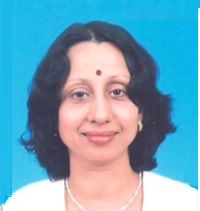
MS T.S. SARASWATHY
Founding
President and Honourary
member of Malaysian Biosafety and Biosecurity Association
Ms.
T.S. Saraswathy retired
as a Senior Research Officer, Grade Khas C, from the Institute for Medical
Research, Kuala Lumpur, where she served for 36 years. Her first appointment
was in Vaccine and Snake antivenom Production Division, where she was
responsible as a Safety Officer for biological & vaccine production,
including production and safety testing of smallpox, rabies, cholera and
typhoid vaccines, and Malaysian Pit Viper antivenom. In 1990 she was
transferred to Virology Unit, Infectious Diseases Research Centre. Her
duties and experience in the Virology Unit included research of infectious
diseases, outbreak investigations for viral infections and working with
infectious pathogens in a Biosafety Level 3 laboratory. She was formerly the
IMR Biosafety Officer & Secretary for the IMR IBC. Her duties included
implementing biosafety & biosecurity practices, biocontainment of
microbiological facilities, risk assessment & risk management in the
biosafety review process of research protocols and training for capacity
building of IMR personnel. She has provided her expertise and leadership
representing the Ministry of Health in national and international technical
expert committees and in the development biosecurity regulatory and guidance
documents, policies and standards. Some of these include CWA 16393:2012
guidance document, MOH SOP for Transport of biological specimens in Malaysia,
Biosafety Guidelines for Contained use activity of LMOs, 2010, Biosafety
guidelines, Risk assessment of genetically modified microorganisms, Malaysian
Biological Toxin and Weapon Convention Draft Bill and Code of Conduct on
Biosecurity in Malaysia, 2015 and the Malaysian Standards for Biocontainment
and Biosafety in microbiology laboratories 2016.
She was the Asia Pacific Biosafety
Association President from 2017-2019 and Founding President of Malaysian
Biosafety & Biosecurity Association, from 2012 till 2015. She is a member
of the Genetic Modification Advisory Committee (GMAC) and
also the GMAC Sub-group Leader for Risk
Assessment (Human Health). She was also former Chair for the GMAC Sub-committee
for Monitoring and Inspection of Contained-use facilities.
SESSION 3 : EVIDENCE-BASED BIORISK ASSESSMENT I
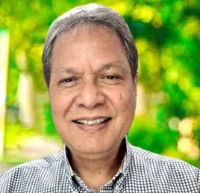
DR JOKO PAMUNGKAS
Asia
Pacific Biosafety Association/ IPB University
Joko has broad background in
microbiology, with specific trainings and expertise in virology-immunology,
animal
model
development,
and
viral
disease
surveillance.
His
research
includes
the efforts to develop vaccines for
HIV and DENV infection utilizing non-human primates.
As PI or co-Investigator on several
Ministry of Health-, Ministry of Finance-, and Ministry of Education, Culture,
Research, and Technology -funded grants, he explored the susceptibility of
Indonesian non-human primate species for alternate
laboratory
animal
in
research
for
human
health,
as
well
as
exploring
the
potential
viral
distribution in the wildlife
reservoirs. Joko had several past and current assignments, such as the Director
of Primate Research Center at IPB University (2005-2017),
Country Coordinator of USAID-PREDICT project in Indonesia (2011-2020),
Coordinator of One Health Laboratory Network (OHLN) at Indonesia One Health
University Network (INDOHUN, 2018-2021), and Vice Coordinator of INDOHUN (2021-present).
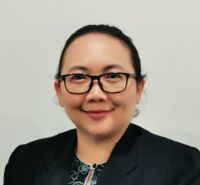
DR ADIRATNA MAT RIPEN
Institute of
Medical Research, National Institute of Health, Malaysia
Dr Adiratna received her MD and PhD degree
from The University of Tokushima, Japan. She is currently working as an
Immunologist at the Institute for Medical Research, NIH Malaysia. She heads the
Primary Immunodeficiency laboratory and her research interests are genomics,
genetics, and immunomodulation with special focus in immune related diseases
especially Primary Immunodeficiency Diseases (PID). Her recent study on PID in
Ministry of Health had shown that whole exome sequencing enhances the capacity
to diagnose PID, allowing more PID patients to receive appropriate therapy and
disease management in Malaysia. She had also reported many distinctive PID
presentations emphasizing the unique disease patterns of PIDs in Malaysia.
Besides that, she is also one of the reference persons for vaccines and has
been appointed an expert panel of drug control authority in the Ministry of
Health. Dr Adiratna is also a GMAC member since year
2012. During the COVID pandemic, her study on COVID vaccine was used to support
the national policy offering booster vaccination for COVID vaccine recipients.
With the findings, her team was awarded as one of the distinctive research
projects that translated data to decision making in clinical research at the 15th National Conference for Clinical
Research in 2022. Her research on PID also received the best biomedical
research in National Institutes of Health Malaysia for the year 2021. Dr Adiratna’s recent focus also includes
Chimeric Antigen Receptor (CAR-T), research on targeted immunotherapy for
Leukaemia in order to diversify treatment choice of Leukaemia in Malaysia.
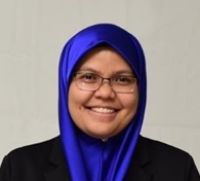
DR NOOR HAZA FAZLINM HASHIM
National
Water Research Institute of Malaysia (NAHRIM)
Dr.
Noor Haza Fazlin binti Hashim received her doctorate in
Microbiology from Universiti Kebangsaan
Malaysia (UKM) in 2014. She currently served as a research officer at Water
Quality Laboratory, National Water Research Institute Malaysia (NAHRIM). She is
an experienced environmental microbiologist where her work mainly focusing on
microbial adaptation, antimicrobial resistance in water bodies, and enzyme
technology. She is appointed as a member of the technical working group,
National Antimicrobial Resistance Committee (2018-2021). Apart from that, Dr.
Noor Haza Fazlin is an active member of Malaysia Society
of Applied Biology where she has served as a deputy treasurer since 2020.
SESSION 4 : THE SCIENCE OF BIORISK MITIGATION
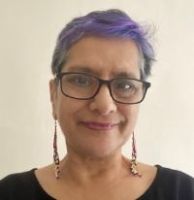
DR VIJI VIJAYAN
Praxis
Biorisk
Systems Pte. Ltd.
Dr. Viji Vijayan is a biorisk consultant working at Praxis Biorisk Systems in Southeast Asia and
other regions worldwide. Praxis means
“exercise or practice of an art, science, or skill” and her passion is to work with sharp end workers in
laboratories to help them put into practice what they have learned about
biosafety and biosecurity. Dr.
Viji’s motto is that safety is simply
the way you work!! Her career began in a biomedical research laboratory, where
I worked for about 10 years after which she switched to Research Operations and
Laboratory Safety. She worked as Associate Professor and Associate Dean in the
Duke-NUS Medical School for about 15 years overseeing, Safety, Health and
Emergency Management; Research Integrity and Compliance; Procurement; and
Research Operations, which included a high containment facility.
Dr. Viji served as the President of
the Biorisk Association of Singapore (2014 to
2017) and Vice President of
the Asia-Pacific Biosafety Association (2018-2021). She is currently a member
of the Board of Directors of the International Federation of Biosafety
Associations. She consults in the field of
biorisk management for various
organizations like the European Union CBRN Centers of Excellence; World Health
Organization through their partner agencies; and Global Affairs Canada though
their projects in South
East Asia. Dr Viji has a WSQ Advanced
Certificate in Training and Assessment (ACTA) which specializes in adult
training methodologies and a Master’s degree in Human Factors and Systems
Safety from Lund University in Sweden. These educational achievements, together
with her vast expertise in the field of biorisk management, has allowed her to
develop a unique set of skills that enables her to develop and implement biorisk management systems with a
distinctive practical approach. Training is her passion and she enjoy engaging
workers at the sharp end. She teaches practical solutions which combines her work
experience with knowledge acquired from industries like aviation,
transportation, healthcare, and others. Safety science is a passion that she has
nurtured over the years, especially the integration of safety into everyday
work life.
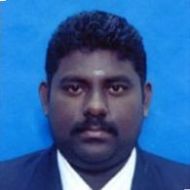
IR. DR R. TIRUSELVAM
Biogard Asia (M) Sdn Bhd.
Ir.
Dr. R. Tiruselvam is a Specialist Lab Consultant
-Biocontainment & Biosecurity with Biogard
Asia (M) Sdn. Bhd. He has 14 years of
experience in providing expert assistance globally on issues of biosafety,
biocontainment and biosecurity. He is part of a team of microbiologists,
biosafety professionals, architects & engineers that bring hands‐on practical experience in
developing national biosafety and biosecurity policies and guidelines, and in
the design, certification and operation of BSL3 laboratories. He is recognized
by the Ministry of Health Singapore and is a part of the MOH-Approved Facility
Certification Body (MOH-AFCB) as an Engineering Professional. He has provided specialists
laboratory consultancy for clients from Malaysia, Brunei, Myanmar, Indonesia
and Singapore. Has has done BSL3 certification for
clients in Singapore such as Temasek Life Sciences, National Public Health
Laboratory and Defense Science Organisation.
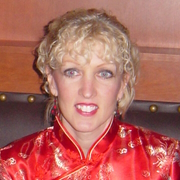
MS MAUREEN ELLIS
International
Federation of Biosafety Associations (IFBA)
•Maureen Ellis is the Executive
Director of the International Federation of Biosafety Associations (IFBA) whose
mission is the Safe, secure and responsible work with
biological materials. The IFBA facilitates partnerships
between their worldwide network of Biosafety Associations and national
governments in strengthening global health security. IFBA’s programs include
developing national biosafety/biosecurity strategies, advancing biorisk
management best practices, certifying the competency of individuals handling
biological materials, undergraduate education in biosafety & biosecurity,
south-to-south peer mentorship, and advancing diversity, equity, &
inclusion in global biosafety & biosecurity. Formerly,
Ms. Ellis was the Advisor to
Canada’s Global Partnership Program where she was responsible for delivering
biosafety and biosecurity programs worldwide. She also served as Director to
Canada’s Public Health Agency Office of Biosafety, and Director of the WHO’s
Collaborating Centre for Biosafety.
SESSION 5 : EVIDENCE-BASED BIORISK ASSESSMENT II

DR MIGUEL MARTIN N. MORENO II
Founder, Biorisk
Association of the Philippines
Dr. Moreno received a Doctor of
Medicine degree from Far Eastern University in Manila. He did his Clinical and
Anatomic Pathology Residency at Makati Medical Center. Through a joint training
program between the National University of Singapore and Makati Medical Center,
he obtained a sub-specialization in Electron Microscopy. He changed profession
in 2001, when he was employed as a Research Scientist at St. Luke's Medical
Center's Research & Biotechnology Division. He was awarded Most Outstanding
Physician by the Philippine Medical Association in 2011. He started his career
in laboratory biosafety and biosecurity in 2008, and he was designated one of
the first 19 certified biosafety professionals by the US Department of State
Biosecurity Engagement Program and the University of the Philippines NIH.
Dr. Moreno urged the Philippine
Association of Medical Technologists (PAMET) to embrace biosafety and
biosecurity at its 50th Annual Convention in his quest to promote biosafety and
biosecurity in all labs. PAMET accepted his challenge, and he became the
organization's point-person for biosafety, biosecurity, and biorisk management, encompassing 97% of
the country's laboratories. The following year, he established the BioRisk Organization of the Philippines
2015, Inc., or BRAP2015. In 2016, the International Federation of Biosafety
Association in Ottawa, Canada, acknowledged his national accomplishments by
naming him the 2016 IFBA Biosafety Hero. He has served as Vice-Chair of the
IFBA Board of Trustees since 2020 and is a member of the IFBA Certification
Body. Doc Martin, as he is known among his coworkers, is presently IFBA
Professionally Certified in Biorisk Management and Biosecurity, and is also a certified lean six sigma
yellow belter.

PROFESSOR DR CHAI LAY CHING
Sunway University
Professor
Dr. Chai Lay Ching is an accomplished microbiologist and professor at Sunway
University, where she also holds the esteemed position of Pro Vice Chancellor
(Education). As the former Chair of the Young Scientists Network-Academy of
Sciences Malaysia (YSN-ASM) from December 2019 to March 2023, she led the
country's top young researchers committed to contributing to the national
ecosystem beyond their individual research interests. In this role, she
inspired and engaged young academics to re-examine their role in shaping higher
education for the future. She is currently serving as the interim committee
member of ASEAN Young Scientists Network to promote scientific excellence in
the ASEAN region.
Professor
Chai's research focuses on infectious microorganisms, food safety, and
microbiological risk assessment. She is highly respected and frequently called
upon to serve on committees and lead initiatives related to food safety and
security at both national and regional (ASEAN) levels. She also actively
participates in academia-industry projects. For her significant contributions
to microbiological safety research, Professor Chai was awarded the Malaspina
International Award by the International Life Science Institute (ILSI) in 2017.
She currently serves as the scientific advisor of ILSI South East Asia Region,
providing invaluable guidance and advice on food safety risk assessment.
Professor
Chai is a strong advocate for responsible research in Malaysia and ASEAN,
actively promoting biosafety and biosecurity. As one of the primary authors of
the first Malaysian Educational Modules on Responsible Conduct of Research in
Malaysia, she has played a vital role in promoting research integrity, dual-use
research, inclusivity, and excellence. She also served as an expert and author
of Practical Toolkit for Practicing Responsible Biological Science and
Mitigating Biotech Risks by Stockholm International Peace Research Institute
(SIPRI). She is also a fellow of 2019 Engaging Young Scientists from the Global
South in Biosecurity Diplomacy of the United Nations Office for Disarmament
Affairs. In addition to her past role as Chair of YSN-ASM, Professor Chai has
also been appointed as a member of National Science Council Malaysia
(2022-2023) to represent the young scientists in Malaysia. Her numerous awards
and recognitions include the prestigious L’Oréal-UNESCO Women in Science Award
in 2018, Marie Claire’s Amazing Woman in Malaysia 2019, Prestige’s 40 under 40
Malaysia 2019, and the Asian Women Entrepreneurs Leadership Award 2019.
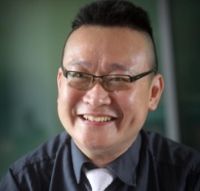
ASSOCIATE PROFESSOR TS. KENNY VOON
University
of Nottingham Malaysia
Associate Professor Ts. Kenny Voon
is affiliated with the Department of Biomedical Science,
School of Pharmacy, University of Nottingham Malaysia (UNM). He is Fellow of
Institute for Research, Development and Innovation (IRDI), International
Medical University and a Professional
Technologist (Biotechnology), Malaysian Board of Technologist (MBOT)
Dr Kenny Voon’s
research focusing on the discovery of novel viruses from bats such as Pteropine
Orthoreovirus
has
contributed in establishing this emerging virus
as one of the respiratory viruses in Malaysia. His research enables him to
publish in several reputable journals such as PLOS, PNAS, JMV and others. He
was given the opportunity to complete part of his Ph.D. work in Australian
Animal Health Laboratory, a BSL4 laboratory in Geelong, Australia. He is
currently investigating the potential of this novel orthoreovirus
as oncolytic virus to treat cancer.
SESSION 6 : BIOSAFETY AND BIOSECURITY

MR ABU BAKAR WEBB
Advocate
Association of Sarawak
Abu Bakar Webb studied and
completed his law degrees in the UK and Australia. He was admitted as an
Advocate and Solicitor of the High Court of Malaya in 2000 and as an advocate
of the High Court in Sabah and Sarawak in 2014. He is also a part time law teacher.
His area of research is on environmental law and policy with special interest
on Biosafety law. He attended courses in Assessment and Regulation of Genetic
Engineering and Genetically Modified Organisms at Norwegian Institute of Gene
Ecology, University of Tromso,
Norway and International Law-Making and Diplomacy at the University of Joensuu,
Finland. He is the author and co-author of several articles in professional
journals and presented papers at numerous national and international
conferences. He is also a columnist with the local newspaper and writes about
contemporary issues on environmental law and policy
.
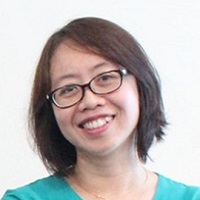
DR YUWANA PODIN
Universiti
Malaysia Sarawak (UNIMAS)
Dr
Yuwana Podin is a senior lecturer at the
Institute of Health and Community Medicine, Universiti Malaysia Sarawak (UNIMAS)
specializing in laboratory and field investigation of outbreaks for endemic
diseases such as hand-foot-and mouth disease and melioidosis in Sarawak,
Malaysian Borneo. Dr Podin holds a PhD in molecular
microbiology and has served as a short-term consultant for World Health
Organization for two emergencies; post-tsunami in Aceh, Indonesia in 2006 and
the AH1-N1 pandemic in WHO HQ, Geneva, Switzerland in 2009. As a member of the
Malaysian Biosafety and Biosecurity Association (MBBA) and an alumni of the
Malaysian Biosafety Officer Training (MABOT), she has been involved in the
biosafety and biosecurity advocacy programmes in Malaysia and around the
Southeast Asian region since 2015. In addition to being a principal
investigator at UNIMAS, she is also serving as the Biosafety Officer for the
university. Dr Podin is also an activist for HIV/AIDS
advocacy work in Sarawak and Malaysia since 2000.
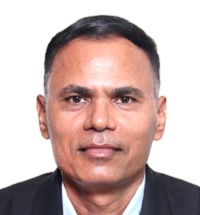
DR SUBHASH J BHORE
AIMST University
Dr
Subhash J. Bhore has a broad background in biology
and biotechnology. He has over 23 years of progressive working experience, 14
years in academic settings, and over eight years in the biotech industry.
Subhash is an International Federation of Biosafety Association’s certified
professional for Biosecurity, Biorisk Management, and BSC. He has
published over 60 peer-reviewed papers and guided nearly 100 postgraduate and
undergraduate students. He has vast experience in developing and implementing
training programs. He is a member of various professional associations,
including the American Biological Safety Association (ABSA International), the
Malaysian Biosafety and Biosecurity Association (MBBA), and the Indian Society
for Biosafety (SBS). As Chairman of the Institutional Biosafety Committee of
AIMST University, he took the initiative to implement Biosafety and Biosecurity
Month in Malaysia before the Coronavirus global pandemic. During the global
pandemic of the Coronavirus disease 2019 (COVID-19), he envisioned and
implemented Biosafety and Biosecurity Month remotely. A unique dialogue session
on “One Health Workforce Development and Preparedness to Face Emerging Zoonotic
Diseases” was a part of it. He has developed and implemented remote trainings
to boost biosecurity and biosafety in Southeast and South Asia. He is
passionate about biosecurity, biosafety, and biorisk management; hence, he actively
promotes the importance of it for sustainability. He firmly believes that
effective biorisk management is the foundation for
one health. He serves as a consultant and subject matter expert to
international agencies involved in strengthening biosecurity, biosafety,
sustainability, and global health security. He received a Doctor of Philosophy
degree in Genetics from the National University of Malaysia.
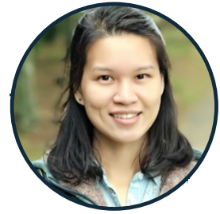
DR EVA TIONG VUNJIA
Universiti Malaya
Dr Eva Tiong Vunjia is a Senior Lecturer at the High-risk Pathogens and Clinical
Research Unit at the Tropical Infectious Diseases Research & Education Centre (TIDREC) at Universiti Malaya. She manages the Biosafety Level 3 facility at TIDREC and has extensive experience working with high-risk pathogens, including Nipah virus, MERS-CoVand SARS-CoV-2.
Her current research focus is on the surveillance of emerging and re-emerging infectious diseases that have substantial implications for public health, with an emphasis on outbreak preparedness. Eva is also an IFBACertified Professional for Biorisk management and serves as a trainer for TIDREC’s Biosafety and Biosecurity Training Programme. Aside from research, she is also a passionate advocate for safe science and fostering a culture of biosafety and biosecurity, both within and beyond the laboratory.
Research Unit at the Tropical Infectious Diseases Research & Education Centre (TIDREC) at Universiti Malaya. She manages the Biosafety Level 3 facility at TIDREC and has extensive experience working with high-risk pathogens, including Nipah virus, MERS-CoVand SARS-CoV-2.
Her current research focus is on the surveillance of emerging and re-emerging infectious diseases that have substantial implications for public health, with an emphasis on outbreak preparedness. Eva is also an IFBACertified Professional for Biorisk management and serves as a trainer for TIDREC’s Biosafety and Biosecurity Training Programme. Aside from research, she is also a passionate advocate for safe science and fostering a culture of biosafety and biosecurity, both within and beyond the laboratory.
